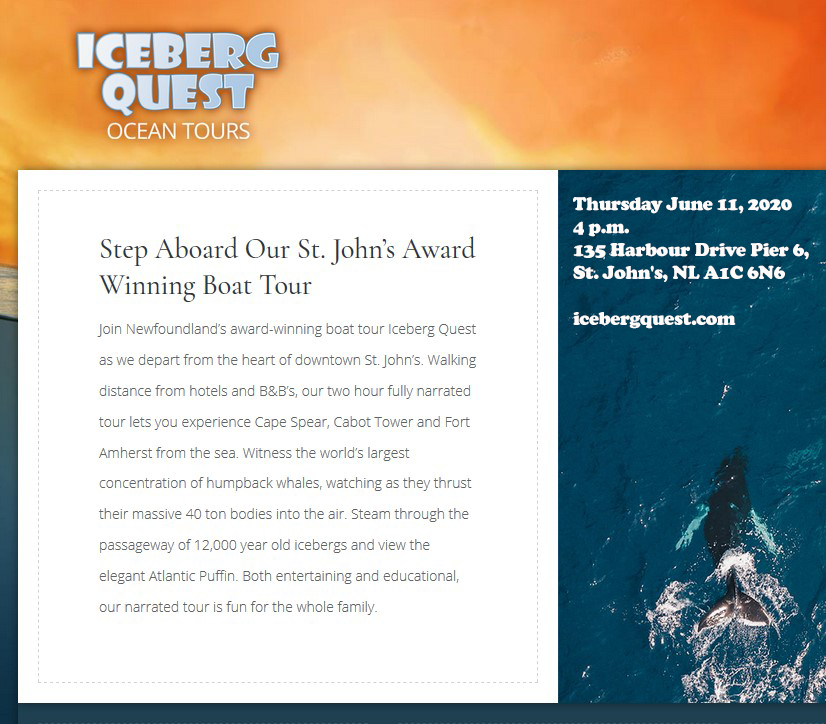The Indexing Society of Canada / Société canadienne d’indexation (ISC/SCI) is Canada’s national association of indexers.
We invite you to find an indexer for your project, read our publications, discover our conferences, events, and resources for indexers, find out about membership, and learn about the Society.
Find an indexer
Find an indexer who works in the subject area of your project.
Find resources
Find information about indexes, indexing practices, and training in indexing.
Attend an event
Attend a local meeting of indexers or attend the annual conference.
Become a member
Join the Society and enjoy the benefits of membership.
Featured Post
What practices will help me with good index term selection?
Conference Registration Now Open
Indexing Society of Canada
The annual ISC/SCI conference in St. John’s, Newfoundland is now open for Early Bird registration.
The conference will be held on Friday and Saturday, June 12 – 13.
Take advantage of these early bird rates until April 30:
- Members (including ASI, ANSZI, SI, all other affiliates and Editors Canada): $290 for full two-day conference, $155 for one day
- Non-members: $330 for two-day conference, $200 for one day
- Special rate for eligible full-time students: $155 for the two-day conference and $85 for one day.
On Sunday we have two half-day workshops: “Index Manager” with Katharina Munk ($75) and “Live Indexing” with Kate Mertes ($75).
On Thursday, we have a special event for new indexers—the Fireside Chat with Stephen Ullstrom and Margaret De Boer. It’s free.
Later on Thursday, join us on the Iceberg Quest boat tour for $63 plus 15% sales tax. (Please register before April 11.)
Prices are in Canadian Dollars.
All of this can be booked online here.
Conference guests include keynote speaker Mary Norris (author and New Yorker magazine copyeditor), Jenny Higgins (Wikipedian-in-Residence at Memorial University) and Colleen Field (Centre for Newfoundland Studies) on periodical databases.
The program also includes Max McMaster on government indexes, Glenda Browne on thesaurus and ontology management, Pierke Bosschieter on self-employment, Kate Mertes on embedded indexes, Pilar Wyman and Judi Gibb with Glenda Browne on NISO, Christine Jacobs on taking your indexing to the next level, and a panel of past award winners on the “Road to Ewart-Daveluy”.
Visit the conference page for the details, including tips for planning your travel and links to accommodations.
Who’s Afraid of Embedded Indexes?
JoAnne Burek
 If you have a bias toward traditional books, you may have been pleased to hear that e-books are still nowhere close to outselling print books?
If you have a bias toward traditional books, you may have been pleased to hear that e-books are still nowhere close to outselling print books?
The predictions of print’s decline have been wild. In 1999, Microsoft declared that by 2018, 90% of all books sold would be e-books. Then in 2013, Price Waterhouse Cooper presented a more moderate view: that e-books would only surpass print books in 2017. Now it appears that e-book sales have actually flattened at around 20-30% of all books sold.
We understand the easy appeal of the e-book format for fiction. But when it comes to non-fiction, more than one indexer has admitted to owning a copy of the same book in both formats. The story is usually like this: We needed the book right away, and it was so easy to download it from the Internet. Besides, we could take the book with us everywhere on our mobile devices. But then we turned around and also bought the print version because that’s really how we want to read non-fiction books.
Our publishing clients understand this, and many are producing both formats. But publishers also want to create a better e-book by having the index embedded. And for many indexers and publishers, embedded indexing is new territory.
You may have heard that Kate Mertes has been working with the Church Historians Press indexing the Joseph Smith Papers. In fact, she won the ASI/EIS Publishing Award for the index to Volume 3 in 2015. Kate told us that her work with the Press is ongoing: “We’ve transitioned from standard stand-alone indexing to an embedded system, and the press has enthusiastically invited, listened to, and implemented my ideas on how to make this work.”
We are delighted that Kate is coming to the ISC/SCI conference in St. John’s, Newfoundland this June 12-13 to give a presentation on her experiences. We concur with Kate that this is timely, “given how many indexers are dealing with this now, and it would show how you can move ahead technologically and produce quality indexes.”
Visit the conference page for details.
Mary Norris is coming to Newfoundland
JoAnne Burek
Yes, that Mary Norris!
In her three decades in the New Yorker’s copy department, Mary received a lot of feedback from readers who care about what some might call “nitpicky” concerns related to the New Yorker style. For Mary, this was fodder for an entertaining column in the magazine, as well as her book “Between You & Me: Confessions of a Comma Queen”.
Her latest book is “Greek to Me”, “a charming account of [her] lifelong love affair with words and her solo adventures in the land of olive trees and ouzo.”

We’re thrilled to have Mary Norris as the keynote speaker at the ISC/SCI conference in St. John’s, Newfoundland from June 12-13. Visit the conference page to learn more about the conference and to plan your trip.
Music while you work
JoAnne Burek
A popular topic on ISC’s email discussion list this month was music to index by. It was generally agreed that it should be instrumental, or at least no English lyrics. Yet, as someone mentioned, when we were kids we found it easier to do our homework with the radio on. Is it younger brains, different tasks, or a bit of both?
Writers might do their best in a bustling coffee shop. Crafts and trades people, if they don’t have a radio playing, might whistle. Why do we seek out constant noise to keep us in the flow?

A few years ago, the founder of Focus@Will, a scientifically-based music streaming service, was in an interview. (I can’t find the podcast, otherwise I would link to it.) He painted a vivid picture of a prehistoric person, shall we say, sitting on the savannah, steadily chipping away to make a tool. Every several minutes, his subconscious notices the quiet. It prods him to break from his task and look around. If his brain didn’t keep interrupting him like this, he’d be taken down by a predator. It’s impossibly to prove, of course—but it’s a lovely image of what might be going on your brain when you need to focus.
It suggests that when indexers have music playing while they work, their subconscious is kept occupied, freeing the brain to stay focused for periods longer than several minutes—which is what we strive for when indexing.
Productivity and efficiency tricks are just some of the things we talk about on our email discussion list. It’s a great place to get help from our peers on all kinds of indexing and business issues. If you’re an indexer and you haven’t yet joined one of these lists, do so now.
And do think about coming to the ISC Conference in St. John’s, Newfoundland June 12-13. Not only will you get more help and ideas—you’ll get to meet and hang out with these peers.
The indexer’s holiday gift guide
JoAnne Burek
Did someone ask you want you want for Christmas?
If you’re like many people, you prefer experiences over material things. So, why not ask for help with your conference travel to St. John’s, Newfoundland next June?
Or more specifically, how about a ticket to the pre-conference event—a boat tour with Iceberg Quest? This award-winning tour will allow you to witness humpback whales, icebergs, puffins, and views of the island landscape from the sea. It’s on June 11 and runs for two hours starting at 4 p.m.

As a conference attendee, you and your travel partner will receive a discounted price if you book through the link on the conference page by April 11. Booking and payment can be made now or when you register for the conference (before April 11).
Why not visit the link now—or send your loved one there with credit card handy. Gift problem solved!
